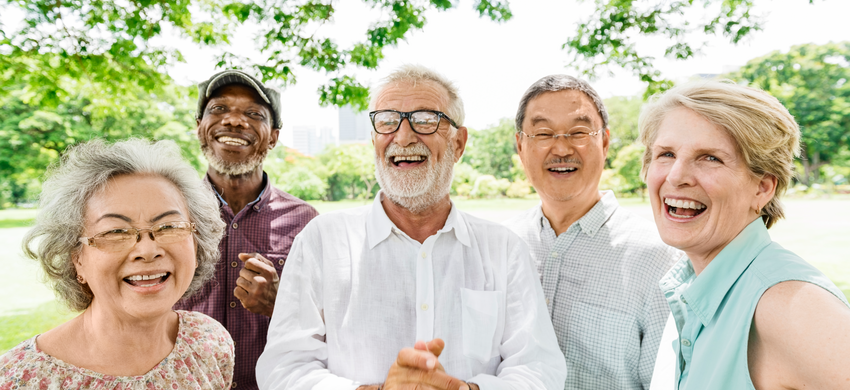Older People and Summer Health
Published on 20 June 2023 12:57 PM
 Staying well this summer
Staying well this summer
Dr Oge Ilozue, GP Partner at Brunswick Park Medical Practice, explains her top tips for a healthy summer season
It’s easy to forget how far we’ve come since 2020. Gone are the days of Covid wreaking havoc on our lives – empty streets, socially distanced walks and getting to grips with video technology so we could safely stay in touch with our loved ones.
Now, as we enter the summer months of 2023, we’re making up for lost time – embracing the outdoors, enjoying quality time with family and perhaps even planning a holiday (or two).
Yet, despite many enjoying the summer months, health risks remain and thousands of older people still end up in hospital each year as a result of illness, heat and allergies. Luckily, there are some simple steps that you can take to stay well this summer.
Stay protected against Covid
Despite the lovely weather, Covid-19 has not gone away. We know that vaccination remains the best protection against Covid, but that protection can fade over time, which is why it’s so important for those most at risk, including people aged over 75, to get the Covid-19 booster before the 30 June.
You don’t need to wait to be invited and booking an appointment is quick and easy. You can book an appointment via the NHS website or NHS app or by calling 119. For more information, search “NHS COVID-19 vaccination”, or speak to your GP.
Stay well in the heat
Enjoying the sun can be an important practice for mental health and overall wellbeing. However, too much sun exposure brings health risks, particularly for older adults and people with heart, respiratory and serious health problems.
Many of us know the basics when the heat strikes, but I’m a stickler for reminders…
Drink plenty of water
Remember if your pee is a dark yellow, it’s time for a glass of water.
Try to stay out of the sun during the hottest parts of the day (11am-3pm)
This is easier said than done at times, so if you need to go outside, try to stay in the shade, wear sunscreen and avoid exercise or activity that makes you hotter during this time.
Keep your living space cool
I’m sure many of us have been tempted to throw the windows open on a hot day in hope of a cool breeze, but leaving windows open during the day will only heat up your living space. Instead, keep them closed and only open them at night if it’s safe to do so.
If you’re finding your home uncomfortably hot and you have concerns about it affecting your health, you can get help from the environmental health office at your local council.
With sun comes pollen, and for many of us that also means hay fever
There are lots of things we can do to treat hay fever ourselves, from putting Vaseline around the nostrils to trap pollen to showering and changing clothes after being outside.
However, hot weather (and even thunderstorms) can be especially tricky for people with lung conditions like asthma and COPD. If the hot weather triggers your asthma or lung condition, it’s really important to keep an eye on pollen forecasts and take simple steps to protect yourself like keeping your preventer inhaler with you at all times.
If you’re using your reliever inhaler three or more times a week, or you’ve noticed the hot weather has made your symptoms worse, book an extra catch-up with your doctor or asthma nurse. For more tips and tricks on looking after your lungs in the heat, visit the Asthma + Lung UK website.
Stay active
If you’re aged over 65, its recommended that you are physically active every day. The lighter mornings and evenings in summer gives us the opportunity to get the blood pumping whilst it’s not too hot – whether that’s going for a simple walk or if you’re feeling adventurous, maybe some yoga, gardening or an outdoor seated workout.
If you haven’t done these before or it’s been a while, getting advice from a health professional at your local GP practice can help you to make these changes safely. This is especially important if you have a medical condition, have recently been ill or in hospital.
Dr Oge Ilozue
Qualified from Imperial College London in 2006 and now a GP in north London. Dr Oge has had postgraduate training in general medicine, paediatrics and women’s health and has also spent a year working in rural South Africa.

